Table of Contents: What You Will Read
Polypropylene (PP) is a common thermoplastic polymer employed in a variety of goods. polypropylene Recycling has considerable economic and environmental benefits. Companies may cut production costs, preserve natural resources, and contribute to a circular economy by recycling polypropylene. Exir Polymer, a well-known polypropylene recycling firm, is critical in converting polypropylene waste into high-quality recycled products.
Read More About Polypropylene: What is Polypropylene?
They contribute to sustainable waste management and the effective use of resources through their innovative recycling process. This article discusses the advantages of polypropylene recycling, the recycling process, recyclable polypropylene products and the role of Exir Polymer in the industry.
Polypropylene Recycling Benefits: Why Do We Recycled Polypropylene?
Polypropylene (PP) is a thermoplastic polymer that is widely utilized in a variety of items such as packaging materials, textiles, furniture and automotive parts. Recycling polypropylene has various advantages, both economically and environmentally. Here are the main ones:
Economic Advantage
The economic advantage provided by polypropylene recycling is one of its primary advantages. Companies may lessen their dependency on virgin raw resources by recycling polypropylene. The extraction and processing of crude oil, which consumes substantial energy and resources, is required for the manufacturing of virgin polypropylene. Recycling polypropylene minimizes the demand for virgin materials, resulting in raw material procurement cost reductions.
Furthermore, recycling polypropylene can assist in lowering total production costs. Polypropylene trash is collected, processed, and transformed into recycled pellets or flakes that may be utilized to make new goods at recycling plants. These recycled materials are frequently less expensive than fresh polypropylene, making them an appealing alternative for producers trying to cut expenses.
Saving Natural Resources
Polypropylene recycling is critical to the conservation of natural resources. Recycling polypropylene reduces the need for extracting and processing raw materials, which aids in the preservation of vital natural resources such as oil and gas. Furthermore, recycling polypropylene reduces the burden on landfills, where plastic waste frequently accumulates and causes environmental problems.
Reducing natural resource consumption through recycling corresponds with sustainable practices and fosters a circular economy, in which things are reused and recycled rather than wasted.
Reducing the Cost of Producing Plastic Materials
Polypropylene recycling helps to reduce total plastic production costs. As demand for recycled polypropylene grows, economies of scale take effect, making the PP recycling process more efficient and cost-effective. When instead of virgin polypropylene and new petrochemical materials, recycled polypropylene is purchased for the production of plastic goods, the final price of plastic goods will be low and the manufacturer’s profit margin will increase.
Furthermore, PP recycling lessens the strain on waste management systems and lowers the expenses connected with garbage disposal and landfill management. Recycling reduces the costs of waste transportation, landfill upkeep and environmental cleanup by diverting polypropylene waste from landfills.
Exir Polymer Products: Recycled Polypropylene Plastic
Polypropylene Recycling Process in Exirpolymer Company
Exirpolymer is a leading company that specializes in polypropylene recycling. Their recycling method consists of many processes that attempt to convert polypropylene waste into high-quality recovered products. Here are the steps taken by this company:
Step 1: Collecting
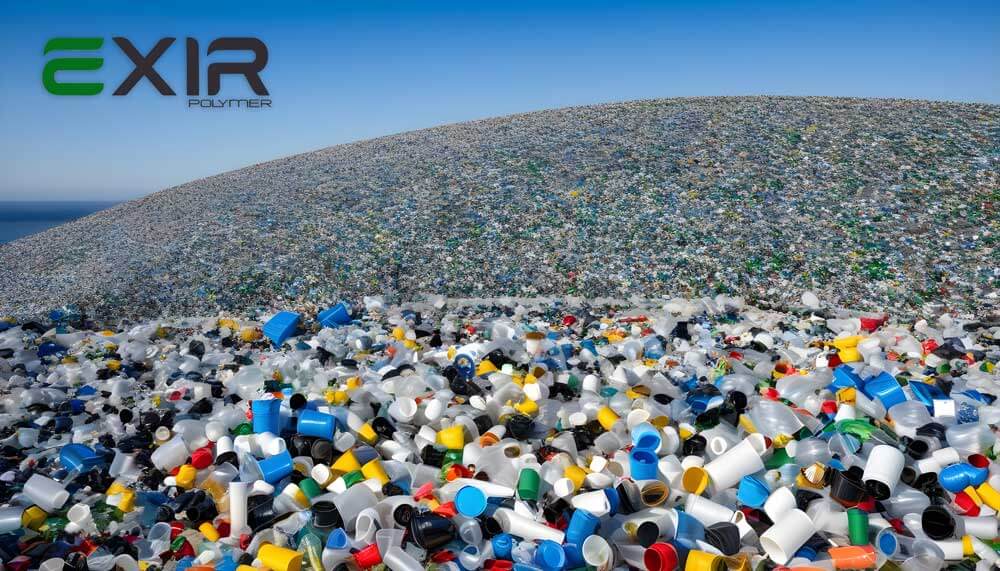
The initial stage of the recycling process involves the crucial task of collecting plastic materials that are suitable for recycling. This step heavily relies on public participation in depositing their recyclable plastic items in designated locations, ensuring they can be efficiently collected and transported to sorting facilities. It is essential for individuals to be diligent in separating recyclable materials, such as plastic, paper, metal, or glass, from general waste.
The materials are loaded onto the trucks periodically in the cities and are brought to the facility.
Step 2: Sorting
The second step in the PP recycling process is sorting the plastics that have been collected. The base polypropylene waste and polystyrene waste are containers of dairy products like yogurt cups and cheese containers. These containers are then separated from other utensils and ware such as shampoo containers, baskets and etc. Then they are pressed, although, sometimes they will and sometimes they won’t.
Step 3: Shredding & Washing
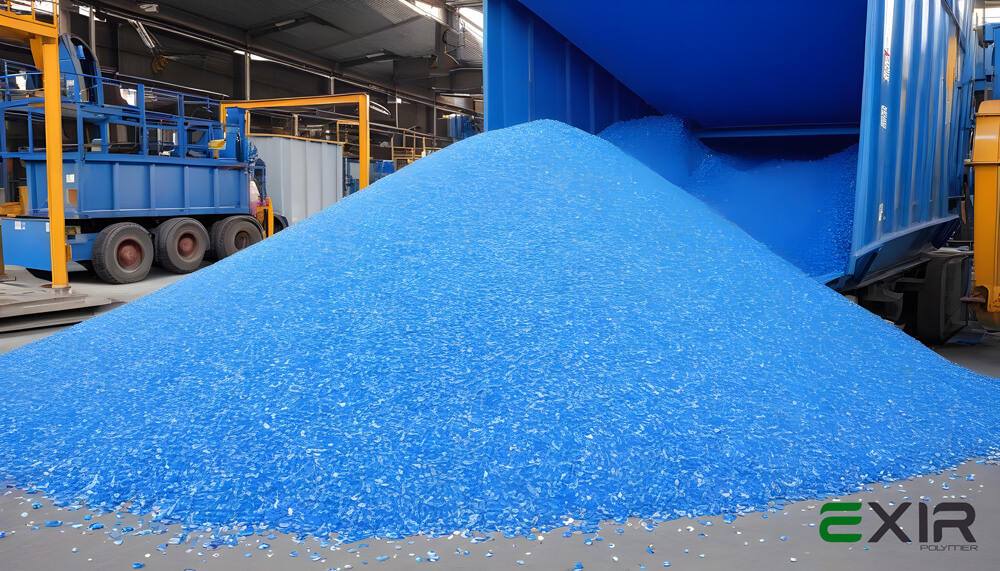
Once the plastics have been prepared, they are sent to the shredder. In this part, the plastics will be washed during the shredding process. After the shredding process, the company completely washes the shredded plastics again using a mechanized washing process. This process will get rid of 80 to 90 percent of the contaminants. During the washing process, polypropylene and polystyrene will be separated due to the difference in their densities. The water density is 1 and polypropylene is lower than that (0/9), that’s why it’ll float on the surface. However, the density of polystyrene is more than that and will sink in the water.
Step 4: Extruding & Melting
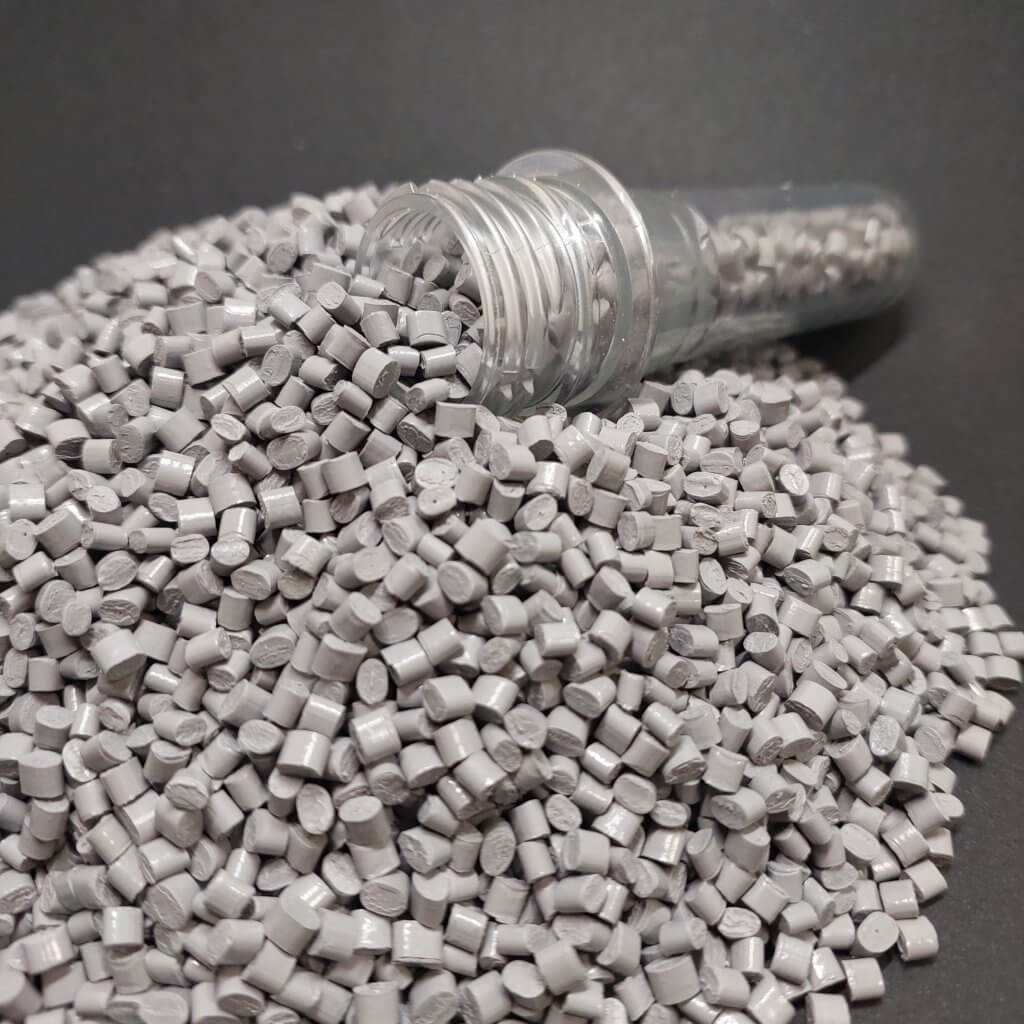
The preceding steps we have discussed are all carried out at Ramsheh Company. After the collection and sorting process, the polypropylene and polystyrene are loaded onto trucks and transported to the company’s facility in Murchekhort. At the facility, both types of plastic are fed separately into an extruder machine. Within the extruder, the plastics undergo a melting process and are transformed into granules. However, it’s worth noting that the extruder allows for the addition of other materials during the melting process.
Exir Polymer Products: Recycled PP Granules
If additional materials are introduced, the plastics can be converted into compound granules, incorporating the added substances. This flexibility in the extrusion process enables the production of customized plastic compounds tailored to specific applications or requirements.
Exir Polymer Products: Recycled PP Compounds
Polypropylene Recycling Number: PP 5
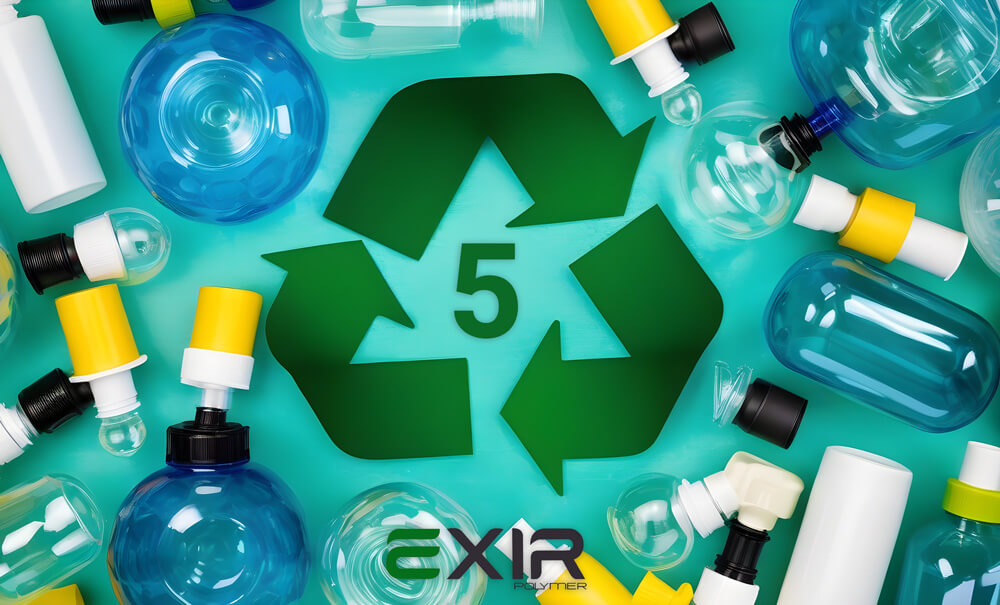
The resin identification code that is used to identify PP plastic is number 5. The chasing arrows symbol, another name for this code, is located on the underside of plastic containers. The number inside a triangle serves as a symbol for the kind of plastic that was used to make the product. Because PP is designated with the number 5, it is simple to identify and sort for recycling needs.
The number five appears inside the triangle of the PP symbol, which is a stylized rendition of the chasing arrows symbol. The product is recyclable and composed of PP plastic, as indicated by this symbol. All items bearing the number 5 cannot, however, be recycled because this relies on the capabilities of the local recycling program.
Examples of Recyclable Polypropylene Products
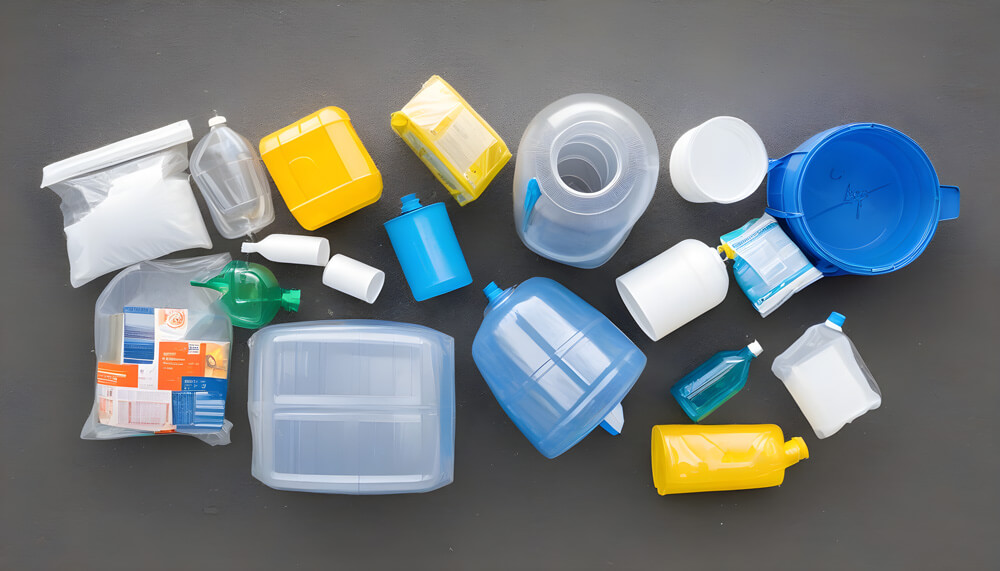
There are several polypropylene products that may be recycled, some of them are as follows:
- Food Containers: Food containers made of polypropylene, such as yogurt cups, margarine tubs and takeaway containers, may be recycled. Before PP recycling, they are completely washed.
- Bottles and Caps: Polypropylene bottles used for Cleaning products, condiments, and personal care items can be recycled. Bottle caps made of polypropylene, for example, may also be recycled.
- Packaging Materials: Polypropylene is a typical material used in packaging, such as shrink wraps, plastic bags, bubble wraps and flexible films. These can be recycled at designated recycling centers.
- Automotive Parts: Polypropylene is used in many car components, including bumpers, battery cases and interior trim. When these components approach the end of their useful life, they can be recycled in order to recover important resources.
- Household Products: Polypropylene is a recyclable plastic that can be used to make a variety of home furnishings, laundry baskets and storage containers.
Exir Polymer: Polypropylene Recycling Company
Reputable company Exir Polymer is an expert in recycling polypropylene. They play a part in the sustainable management of waste polypropylene because of their vast knowledge and experience in the field. Exir Polymer runs state-of-the-art recycling facilities that gather, sort, clean, and convert waste polypropylene into high-grade recycled materials.
Exir Polymer facilitates the effective use of resources and lessens the negative environmental effects of plastic waste through its recycling process. Their ability to supply recycled polypropylene materials that can be used to create new products and lessen the dependency on virgin materials makes them indispensable to the circular economy.
The environmental and financial benefits of Exir Polymer’s dedication to polypropylene recycling are twofold. They assist in lowering the cost of production for manufacturers by offering recycled polypropylene materials at competitive prices. Goals for waste reduction, resource conservation, and sustainable practices are all supported by their recycling procedure.


 فارسی
فارسی العربية
العربية